
Being bilingual, one could hardly blame Einstein for being a bad speller in English. Yet it wasn’t just in English that Einstein struggled. He also was a pretty bad speller in his native German, and got even worse when he began using English more regularly. Of course, Einstein didn’t make those same errors when it came to writing mathematical equations, a fact that helped to make his name synonymous with genius today.

While today Churchill may be regarded as a great leader and speaker, he had a rough start in his schooling, always struggling with spelling and writing. He was a notoriously bad speller throughout his life, but he never let it hold him back. He battled through his difficulties, which also included a speech impediment, to leave his mark on the world.

JFK is a figure that has fascinated the American public for decades, but what many may not know is just how bad of a speller the famous president was. He was outed for his poor spelling by his wife, Jackie, though she was a French literature major in college and would later become a book editor, so she may have been a pretty harsh critic.
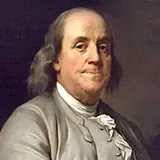
Ben Franklin wasn’t a particularly good speller in his time, and actually felt that the alphabet as it stood (and still does today) was what was holding so many back from being able to spell. In a letter he once wrote, “You need not be concerned in writing to me about your bad spelling, for in my opinion as our alphabet now stands the bad spelling, or what is called so, is generally best, as conforming to the sound of the letters and of the words.” Whether you struggle with spelling or not, you have to admit he has a point, as many words are spelled quite differently than they sound.
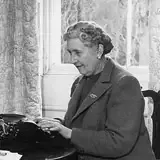
Agatha Christie penned some of the bestselling books ever created, but the author admitted once, “I, myself, was always recognized … as the “slow one” in the family. It was quite true, and I knew it and accepted it. Writing and spelling were always terribly difficult for me. My letters were without originality. I was … an extraordinarily bad speller and have remained so until this day.” Despite her struggles with spelling, Christie was an enormously successful writer, and has gone down in the Guinness Book of World Records as the best-selling novelist of all time.
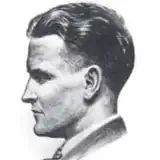
Few writers are so known for their bad spelling as Fitzgerald. How bad, you say? Fitzgerald wasn’t even able to spell the name of one of his closest friends, Hemingway, often misaddressing him in correspondence and papers as “Earnest Hemminway.” The editor of his collected letters called him a “lamentable speller” who struggled with words like “definite” and “criticism.” Still, his poor spelling didn’t seem to do the author any harm, and many of his works are regarded as literary masterpieces today.
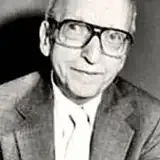
Unfamiliar with this name? Well, you’re probably familiar with what he created, though it might surprise you to learn that Butts was a bad speller. He created the iconic and still quite popular game Scrabble, which requires one to be adept at spelling. The inventor himself was admittedly not the best speller, often scoring only 300 points on average in a game of Scrabble.
https://www.onlinecollegecourses.com/2012/01/24/15-famous-thinkers-who-couldnt-spell/
Michael Faraday

The Amateur:
A guy who worked in a London book shop, with virtually no formal education.
The Accomplishment:
Revolutionized our understanding of electricity, and a whole lot more.
If you are using anything powered by electricity, if you know anything about magnetism, if you have ever used a Bunsen burner or if you are a big fan of benzene and the clathrate hydrate of chlorine (and who isn't?), then you owe some respect to Mr. Faraday. Michael Faraday was a genuine experimental genius and is considered one of the most influential scientists of all time. Oh, and he never had any formal education.
Faraday invented the electric motor, the electric generator, the Bunsen burner, electrolysis and electroplating. He discovered electro-magnetic induction, he discovered benzene, he figured out the shape of magnetic fields, discovered metallic nano-particles (thought to be the birth of nano-science) and something complicated about chlorine. Basically, he was a science machine.
Today, his legacy lives on as one of the best scientists the world has ever seen, despite having never been taught science in his life. Besides, no one could really teach him much science because he discovered most of it.
https://www.cracked.com/article_19248_6-uneducated-amateurs-whose-genius-changed-world.html
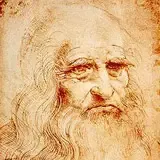
Leonardo helped define the term “Renaissance man,” excelling in both the arts and the sciences, but spelling may not have been his forte. He is quoted as having once said, “You should prefer a good scientist without literary abilities than a literate one without scientific skills.” Some historians believe he may have been dyslexic (there is no way to prove that, of course) as his journals and writings are riddled with spelling errors common with dyslexics.
Would you like me to go on?....I don't think it's necessary given the quote from Leonardo.
No please go on
Downvoting a post can decrease pending rewards and make it less visible. Common reasons:
Submit
lol
Downvoting a post can decrease pending rewards and make it less visible. Common reasons:
Submit